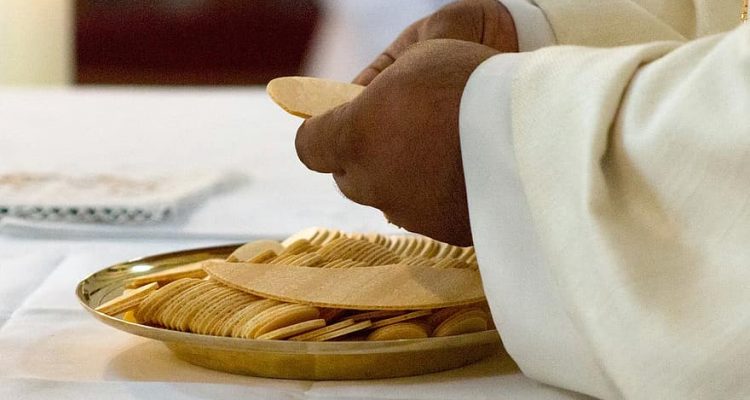In an increasingly divided nation, American Catholics have established a new point of disagreement. A new controversy has arisen on the question of receiving Holy Communion, particularly with regard to politicians: who is worthy to receive, and who is not?
This developing scrutiny has been particularly focused on President Joe Biden recently, whose policies on the issue of “reproductive rights” are vehemently pro-choice. This stance, however, is “at odds with fundamental Catholic values” and has thus been used as a rationale in denying the president Holy Eucharist at mass, among other political figures.
I would argue, however, that this new political obsession about the distribution of communion is counterproductive to the most inherent and essential of the Church’s teachings.
My argument stands free of any discussion or judgment of the “reproductive rights” issue, nor does it attempt to minimize the sanctity of receiving the Eucharist. My thinking, however, is rooted in the fact that receiving communion is deeply personal.
Theologically, it is understood that each individual ought to receive communion in a state of grace. This state, however, cannot and should not be discerned from an external entity. Whether one is prepared to receive the Eucharist is deeply intertwined with one’s intentions in acting: was the individual aware of the implications behind their wrong actions? Did they understand the gravity behind their mistake? Did they know what they did was wrong when they did it?
I would like to make the argument that these questions cannot be answered on behalf of the President. Even if we were to be conservative in following Church teachings, assuming the President’s state of worthiness to receive is inherently presumptuous.
I would also like to raise the point that the Eucharist is fundamentally rooted in the concept of reconciliation. Receiving communion is essentially the basis of our Catholic faith; it is our modern covenant, the way by which we receive grace. It is the foundation of our faithful lives, and it is not our prerogative to decide who is worthy of God’s grace. In fact, this denial of communion seems far from pro-life, considering the fact that Catholics believe the Eucharist to be the bread of life.
This whole scrutiny of who is worthy and who is not, seems to abandon the broader reconciliatory culture behind the sacrament itself; the whole notion of communion is about forgiveness. Even if one were to consider Biden’s actions wrong, denying him an opportunity to receive grace is exclusive, it’s not our prerogative, and it shouldn’t be what we stand for. With the question of worthiness aside, the implications of denying someone communion, in the public eye no less, are hugely impactful. Whether we’d like to admit it or not, this new uproar paints the Church as a condemning entity.
Whatever happened to “come as you are” (James 4:8-9)?
As a Church, we are supposed to be a home for the hurting, not a pedestal for the righteous. When did we lose our dedication to this, one of the most fundamental of our principles?
Should we encourage the individual to reverently receive communion? Yes. But should we be focusing our discussion on judgment, in an age of mass media? No.
The world is hurting outside of our stained glass windows. In the words of one of my favorite authors, Bob Goff, “people need love and acceptance a lot more than they need advice.”
In light of Jesus’s teachings, “He that is without sin among you, let him first cast a stone” (John 8:7).


Leave a Reply